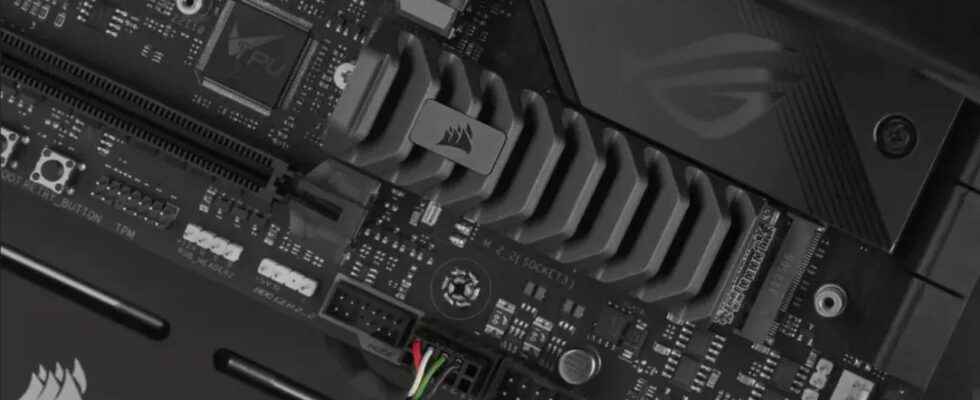A new generation of SSD is about to point the tip of its nose with, as a result, performance up sharply.
If it was not the first to make announcements concerning its PCI Express 5.0 SSDs, Corsair does not intend to be the last either and while the train is still in the station, the American makes a few announcements.
AMD AM5 platform support
Last year, Intel was the first to present a platform capable of exploiting both DDR5 memory and PCI Express 5.0, Alder Lake. For its part, AMD was not in such a hurry and this double support will only occur with the AM5 platform.
This serves as a support for the Ryzen 7000 processors and it should arrive in September. The PC giants will both have moved to PCI Express 5.0 by then, with Intel further cementing its involvement with the imminent release of the Raptor Lake CPU generation.
A few days ago, Corsair announced its support for the AM5 platform and confirmed at the same time that the industry was waiting for wider support for PCI Express 5.0 to turn to this new technology. That seems to be the case today.
Performance up around 40%
The – partial – presentation of the MP700 SSD goes in this direction and allows Corsair to step up to the plate with an SSD that it presents of course as revolutionary. Corsair’s figures are certainly impressive, but impossible not to also be a little disappointed.
Indeed, the American explains that the MP700 is capable of speeds of 10 GB/s in sequential reading and 9.5 GB/s in sequential writing. High values, significantly higher than what we got on the MP600 Pro XT, one of the fastest PCIe 4.0 SSDs.
However, Corsair is still far from the values that some were advancing and also far from the bandwidth allowed by PCIe 5.0 (15.8 GB / s). Finally, while the most capable PCIe 4.0 SSDs are already expensive, we are of course concerned that the prices will soar even further.
Source : Tom’s Hardware

10